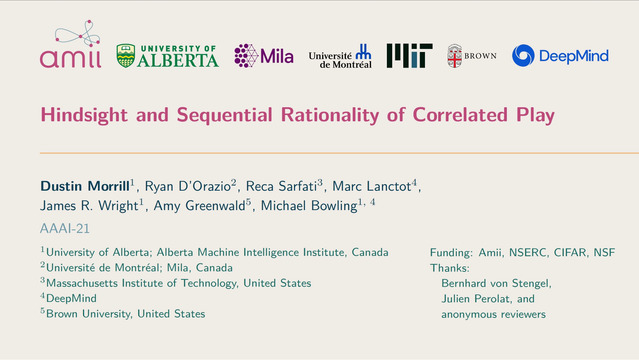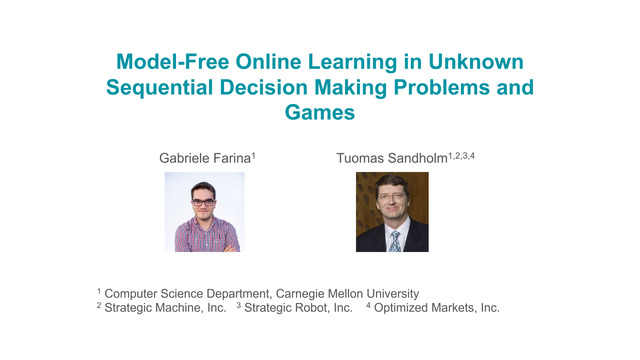Abstract:
Contemporary work on learning in continuous games has commonly overlooked the hierarchical decision-making structure present in machine learning problems formulated as games, instead treating them as simultaneous play games and adopting the Nash equilibrium solution concept. We deviate from this paradigm and provide a comprehensive study of learning in Stackelberg games. This work provides insights into the optimization landscape of zero-sum games by establishing connections between Nash and Stackelberg equilibria along with the limit points of simultaneous gradient descent. We derive novel gradient-based learning dynamics emulating the natural structure of a Stackelberg game using the Implicit Function Theorem and provide convergence analysis for deterministic and stochastic updates for zero-sum and general-sum games. Notably, in zero-sum games using deterministic updates, we show the only critical points the dynamics converge to are Stackelberg equilibria and provide a local convergence rate. Empirically, the proposed learning dynamics mitigate rotational behavior and exhibit benefits for training Generative Adversarial Networks compared to gradient play.









































